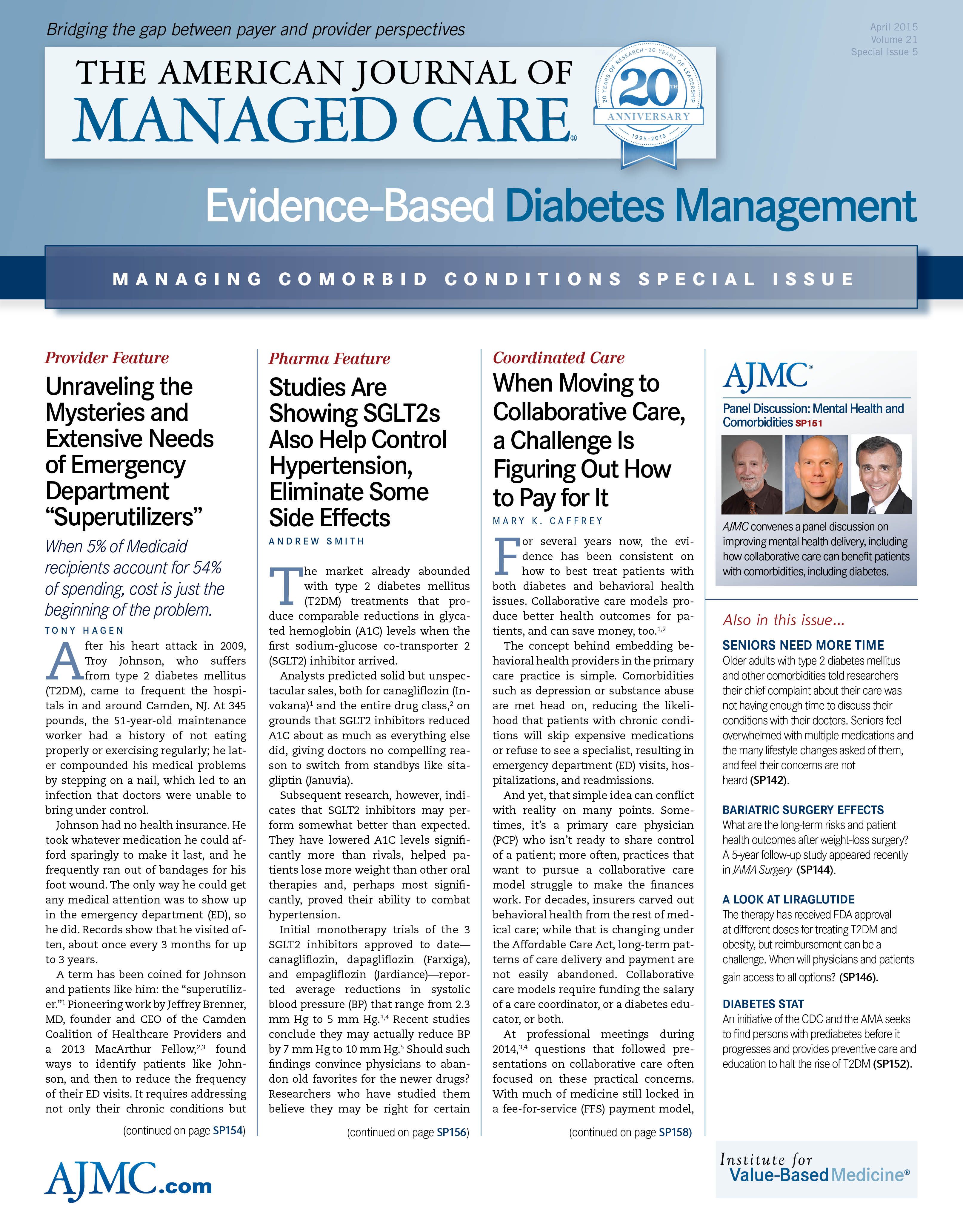- Center on Health Equity & Access
- Clinical
- Health Care Cost
- Health Care Delivery
- Insurance
- Policy
- Technology
- Value-Based Care
FDA Approves Aflibercept for Diabetic Retinopathy in Patients With Diabetic Macular Edema
Afl ibercept, to be marketed as Eylea, received approval March 25, 2015, from FDA for treatment of diabetic retinopathy (DR) in patients with diabetic macular edema (DMA).1
Afl ibercept is an injectable treatment for DR, which the FDA cites as the most common diabetic eye disease and a leading cause of blindness among adults ages 20 to 74 years in the United States.1 The risk of DR has increased as incidence of type 2 diabetes mellitus (T2DM) has gone up in recent decades. The number of Americans with type 1 diabetes and T2DM is about 29 million.2
With the approval of afl ibercept, patients with DR have multiple treatment options, said Edward Cox, MD, MPH, director of the FDA’s Of ce of Antimicrobial Products at the Center for Drug Evaluation and Research. Doctors administer a ibercept by injection in the eye once a month for 5 months. Then, patients receive the injections once every 2 months. Treatment is given alongside appropriate efforts to control blood sugar, blood pressure, and cholesterol.
The FDA approval comes after safety and ef cacy were demonstrated in trials involving 679 patients in 2 studies. Participants were randomly assigned to receive afl ibercept injections or macular laser photocoagulation, a laser-based treatment used to burn small areas of the retina. At week 100, those being treated with the study therapy showed signi cant improvement in the severity of their DR, compared with patients who did not receive injections.
Common adverse events (AEs) associated with afl ibercept included bleeding of the conjunctiva, eye pain, cataracts, oaters, increased eye pressure, and separation of the interior jelly of the eye from the retina. Serious AEs included eye infections and retinal detachments.
FDA approval follows prior designation of afl ibercept as a breakthrough therapy.
REFERENCES
1. FDA approves new treatment for diabetic retinopathy for patients with diabetic macular edema [press release]. Silver Spring, MD: FDA Newsroom; March 25, 2015. http://www.fda.gov/NewsEvents/Newsroom/PressAnnouncements/ucm439838.htm
2. American Diabetes Association. Economic costs of diabetes in the United States. Diabetes Care. 2013;36:1033-1046.


